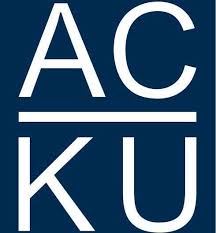Smart development in Afghanistan : field report from Afghanistan / Oxfam America.
Material type: TextSeries: ; Series (Field report).Publication details: Boston : Oxfam America Headquarters, 2009.Description: 9 p. : ill. ; 30 cmSubject(s): DDC classification:
TextSeries: ; Series (Field report).Publication details: Boston : Oxfam America Headquarters, 2009.Description: 9 p. : ill. ; 30 cmSubject(s): DDC classification: - Pamphlet HV 555 .A3 .S637/.2009
| Item type | Current library | Call number | Status | Date due | Barcode | Item holds | |
|---|---|---|---|---|---|---|---|
 Books
Books
|
Afghanistan Centre at Kabul University | Pamphlet HV 555 .A3 .S637/.2009 (Browse shelf(Opens below)) | Available | 16410 |
Summary: This report aims to convey the views of people who have extensive experience with US development aid to Afghanistan. Forty people were interviewed in Kabul in November and December 2008. They included employees of the US Agency for International Development (USAID), other foreign donors, contractors, consulting companies, and Afghan and international nongovernmental organizations (NGOs), many of whom have several years of experience working in Afghanistan, as well as Afghan government officials. Several interviewees made the important point that all major donors struggle to achieve their objectives in Afghanistan. Despite difficulties, many interviewees believed there were key areas where the US could substantially increase the effectiveness and impact of its assistance, including with respect to the purpose of aid, issues of modernization, and ownership.
• Purpose. Interviewees were concerned about the US using aid for security objectives; overemphasizing short-term goals instead of long-term development; and overlooking sectors, like agriculture and rural trade, that support the livelihoods of most Afghan households
• Modernization. Despite some laudable efforts in Afghanistan, US aid practitioners are bound by structures and strategies that often constrain their ability to work effectively on the ground. In particular, interviewees raised their concerns that USAID’s contracting system relies too much on private contractors.
• Ownership. Good development helps people help themselves, but US assistance tends to be too supply-driven and is overly reliant on contractors and Provincial Reconstruction Teams to deliver development assistance, rather than being led by Afghans themselves. (Executive summary).
